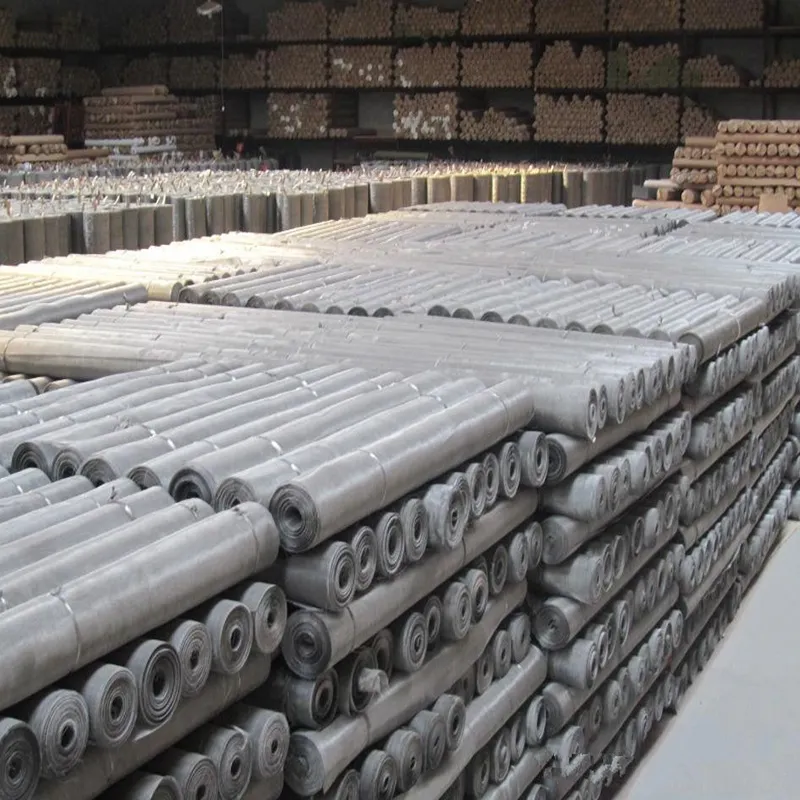-
+86 15030157877
-
sales@galvanizedmetalmesh.com
dec . 22, 2024 16:47 Back to list
horse fence wire
Understanding Horse Fence Wire A Guide for Horse Owners
When it comes to keeping horses safe and secure, choosing the right fencing is paramount. Among various fencing options, horse fence wire is a popular choice for many equestrians. This article will explore the benefits of horse fence wire, factors to consider when selecting it, and maintenance tips to ensure longevity and safety.
What is Horse Fence Wire?
Horse fence wire is specifically designed to contain horses while also offering visibility. Unlike traditional wooden fences, which can obstruct a horse's view, wire fencing allows them to see their surroundings. This openness helps reduce anxiety in horses, who are naturally curious animals. Wire fences can be made from materials such as galvanized steel or woven wire, each offering different advantages.
Benefits of Horse Fence Wire
1. Safety One of the primary reasons to use horse fence wire is safety. Horses can injure themselves on traditional fences if they kick or run into them. Wire fences, particularly those designed for horses, reduce the likelihood of such injuries. Many wire options come with smooth surfaces that are less likely to catch a horse while they’re playing or running.
2. Durability Wire fencing is often more durable than wood or vinyl options. It can withstand harsh weather conditions without warping or splintering, which makes it a cost-effective choice in the long run. Galvanized wire, in particular, is resistant to rust, ensuring that your fence remains sturdy for years to come.
3. Versatility Wire fencing can be adapted for various layouts and terrains. It can be installed in straight lines, curves, or awkward corners, making it suitable for almost any property shape. Additionally, it can be combined with other materials, such as wooden posts or railings, to enhance both aesthetics and safety.
4. Cost-Effectiveness Generally, horse fence wire is more economical than other fencing materials. Its installation and maintenance costs tend to be lower, making it accessible for horse owners on various budgets. Purchasing roles of wire fencing often costs less than buying panels or lumber.
Factors to Consider
When selecting horse fence wire, there are several key factors to take into account
horse fence wire

- Height and Spacing Ensure the wire fence is tall enough to prevent horses from jumping over it. Typically, a height of 4.5 to 5 feet works well. Additionally, spacing between the wires should be narrow enough to prevent a horse from getting its head stuck.
- Wire Thickness Choose a wire gauge that is both strong and flexible. Heavier gauges are less likely to break under tension, while lighter gauges can be easier to work with during installation.
- Type of Wire Different types of wire are available, such as high-tensile wire, barbed wire (not recommended for horses), and smooth wire. For horse enclosures, smooth wire is the safest option as it prevents injuries.
Maintenance Tips
To ensure your horse fence wire remains effective and safe, regular maintenance is essential
- Inspection Regularly check for any rust, loose wires, or signs of wear and tear. Prompt repairs will prevent potential accidents.
- Tensioning Over time, wire can sag. Re-tensioning the wire as needed will maintain the integrity of the fence and prevent gaps from forming.
- Cleaning Keep the area around the fence clear of debris and weeds. This not only improves aesthetics but also reduces the risk of pests that could compromise the fence's integrity.
Conclusion
Horse fence wire is an excellent option for equestrians looking to create a safe and effective enclosure for their horses. With its numerous benefits, including durability, safety, and cost-effectiveness, wire fencing stands out as a practical choice. By considering the key factors when selecting wire and maintaining it properly, horse owners can ensure a secure environment for their equine companions.
-
Premium Welded Gabion Mesh | Robust & Eco-Friendly
NewsJul.31,2025
-
Premium Eco-Friendly Roof Tiles | Affordable & Durable
NewsJul.31,2025
-
Premium Roof Tiles for Durable & Stylish Roofing Solutions
NewsJul.30,2025
-
High-Quality Roof Tiles for Durable & Stylish Roofing Solutions
NewsJul.29,2025
-
High Quality Square Wire Mesh Manufacturer & Supplier for Wholesale
NewsJul.29,2025
-
Premium Roof Tiles for Durable & Stylish Roofing Solutions
NewsJul.29,2025



